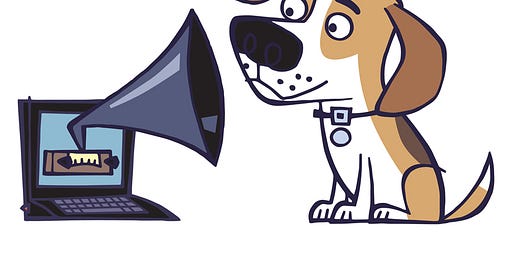Transcript: Jamie Kirchick On Gay Washington
We discuss - with a live audience! - a new history of the nation's power center.
We took the podcast on the road — to Provincetown for a live chat with Jamie Kirchick, whose new book, Secret City: The Hidden History of Gay Washington, I reviewed on June 3, 2022. We were able to discuss much more than could be covered in pixels — with questions from the audience as well. Many thanks to Twenty Summers for hosting the event.
The original episode aired on June 10, 2022 and you can listen to it here. Some money quotes from Jamie:
“There are serious inquiries into whether or not the Nazis are gay … Then when Communism is our threat, we associate Communism with homosexuals. Pedophilia is associated with homosexuals. The worst things are repeatedly associated with gay people — with gay men in particular.”
On Frank Kameny: “I think to be a gay person in 1957 and say, ‘No, you know what, homosexuality is a morally neutral trait, and I’m not sick. You’re sick. The society is sick.’ It’s like Galileo, it really is that transformative.”
“If there’s a villain in the book, it’s the closet. It’s not any one person; it’s the closet.”
Andrew: Good day, we're back at the Dishcast. Another Friday, this time we tried something different. We actually went out on the road to take the Dishcast to an actual audience. We did it at the Hawthorne Barn, a legendary old barn, that was once used as a famous studio for teaching art. I chatted with James Kirchick, who is the author of the now bestselling book Secret City, which is about gay Washington. Specifically, it’s about gay Washington in the 20th century up to the presidency of George H.W. Bush and it’s about the Secret City, the toll that oppression, real oppression, took on gay men and women, mainly gay men, in this context.
We had a really wonderful conversation with some questions afterwards from the audience. It's about the book that I reviewed last week, but it gets into so much more detail. It conjures up a whole variety of stories from the past that bring and has brought gay Washington, the Washington I've always lived in and understood, to life.
Brand new facts, whole new storyline, a brilliant narrative of something that's been weirdly not covered, partly because it's Washington D.C. and not New York or San Francisco. This book is not primarily about activists, but about gay men in power and also powerless. Jamie's an old friend of mine, he's a brilliant writer, and I was delighted to host him and I'm thrilled that his book has come out. So, enjoy.
Thank you very much. It is an extraordinary pleasure to to be able to talk to my old friend, Jamie Kirchick, who has been working on a book for, what is it, 35 years? [Jamie laughs] For a long time, diligently. What he's produced is a remarkable book. I think it's remarkable because, well, I've waited to read this book my whole adult life. It's the first book to explain Washington as a gay city.
We all have this idea of San Francisco and New York and LA, in their different ways, but Washington is as gay, if not gayer, than those cities. And it's a very different experience. Those of us who've lived there and love it, just had nowhere to go to read the actual story of what we are seeing around us and what we knew happened in history. Secondly, it's really an important book about the history of the gay rights movement. Probably the greatest misleading element of the way so many people understand it, in my opinion, is that they think it started in 1969 in New York.
That was a very important point in the culture, I don't want to deny that importance. It was electrifying in many ways, but work had been going on a long time before that. Among the most important work was being done in Washington, which was one of the scariest cities to live in, as well.
Before we start, just one statistic:
Keep reading with a 7-day free trial
Subscribe to The Weekly Dish to keep reading this post and get 7 days of free access to the full post archives.



